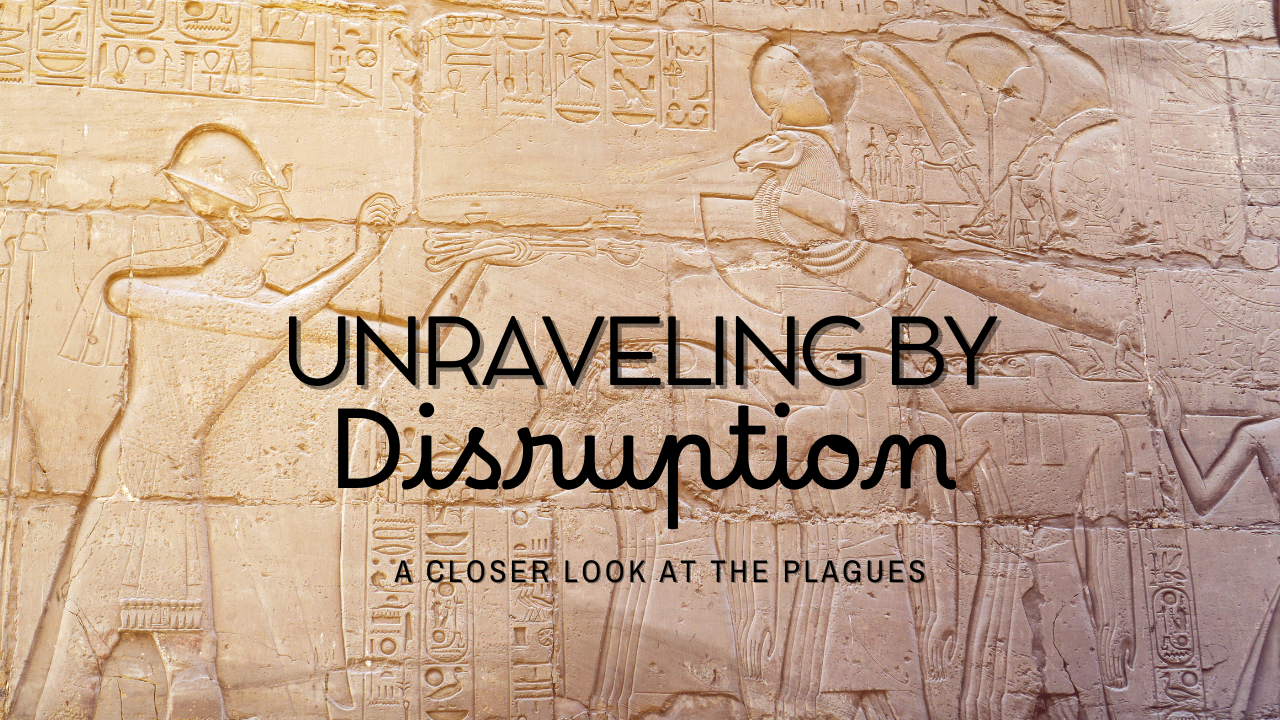Unraveling by Disruption: A Closer Look at the Plagues
When we think of the Exodus story, it’s easy to picture the chaos: rivers turning to blood, swarms of insects, darkness falling over the land. The ten plagues often read like a blockbuster disaster movie—loud, wild, and unstoppable. But what if there's more going on in this story than just divine punishment and shock value? What if the unraveling we see here has purpose—and even mercy—woven into it?
That’s exactly the kind of question we’re holding in our Unraveled series: when the world comes apart, might God still be working through it?
Rethinking the Plagues
Traditionally, we hear the plagues described as God’s judgment raining down on Pharaoh and Egypt to force the Israelites’ release. And yes, they are dramatic. But many Jewish and Christian scholars have noticed something deeper in how the plagues unfold. They aren’t random. They follow a structure, a rhythm, even a kind of symmetry—three sets of three, with the tenth plague standing on its own as the final blow.
Each set of plagues also touches a different realm of creation: the earth, the animals, and the skies. It’s as if God is reminding Pharaoh (and maybe us) that divine power covers the full sweep of creation—from the ground beneath our feet to the heavens above.
But here’s where it gets interesting: that structure isn’t just about control. It also reveals care. These aren’t chaotic outbursts. They're a carefully unfolding story—one that calls for reflection, repentance, and change.
Justice and Mercy, Side by Side
Take that first plague—water turned to blood. It’s a powerful symbol, especially when we remember how Pharaoh once used the Nile to drown Hebrew babies. Now the water that once gave life becomes a sign of death. But even then, it’s not a final blow. It’s a wake-up call.
Each plague disrupts life in Egypt, but with pauses between them. There's space for Pharaoh to respond, to relent, to reflect. Over and over again, God gives room for change. That’s not reckless punishment—it’s patient mercy.
It’s a hard kind of mercy, for sure. But it’s real. And that’s something many of us can relate to: we don’t always listen to whispers. Sometimes it takes a storm—or a whole series of them—to shake us into seeing what needs to change.
Anti-Creation Narrative by Lauren Wright Pittman, graphic image. Used with permission by A Sanctified Art.
Unraveled on Purpose?
When we dig a little deeper, we see that the plagues don’t just show God tearing things down. They mirror the act of creation in reverse. In Genesis, God speaks order and beauty into the world. In Exodus, we see that same creation slowly, intentionally unraveling—not to destroy it forever, but to make space for something new.
That’s a powerful idea. Because when things unravel in our lives—when plans fall apart, when injustice rises, when the world feels upside down—it’s tempting to assume it’s all falling apart for good. But this story reminds us that unraveling isn’t always the end. Sometimes, it’s the beginning of liberation.
What About Us?
So here’s the question we’re left with: when we encounter disruption, personally or in the world around us, can we see it as more than chaos? Can we ask what God might be revealing through the unraveling?
Maybe justice doesn’t always come in lightning bolts. Maybe it comes in careful, persistent nudges—a holy unraveling that makes space for something better.
As we walk through our own seasons of uncertainty, this story from Exodus invites us to look again. What might feel like divine distance or destruction could actually be God moving slowly, intentionally, and compassionately—making room for justice, for mercy, and for freedom.




